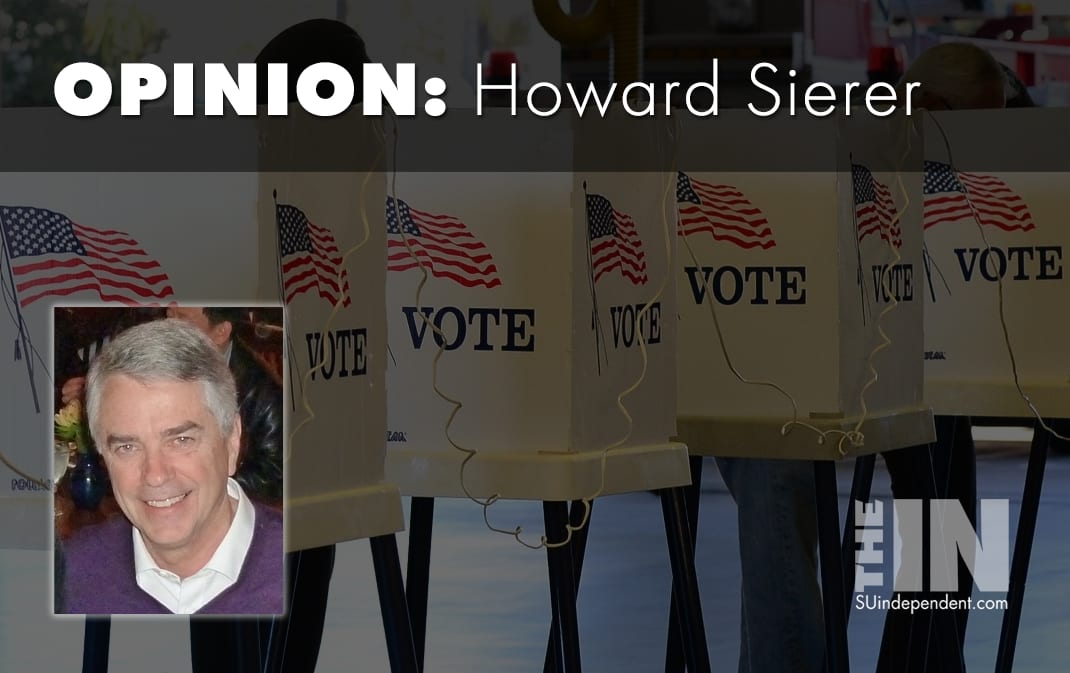
Money Can’t Buy Love
“I’ll give you all I’ve got to give, if you say you love me too” – “I don’t care too much for money, money can’t buy me, love.”
Those lyrics from the classic Beatles’ song “Can’t Buy Me Love” apply all too well to the recently-abandoned presidential campaigns of billionaires Mike Bloomberg and Tom Steyer.
Between them, the two spent a total of almost a billion dollars on their campaigns. The result: 61 delegates for Bloomberg and none for Steyer toward the 1,991 needed to win the Democratic nomination.
Longtime California Assembly Speaker Jesse Unruh famously said, “Money is the mother’s milk of politics.” We’ve been hearing for decades that “big money” from the wealthy elite controls elections.
So what went wrong for Bloomberg and Steyer? There’s an old adage in the advertising business saying, “Nothing kills a bad product faster than good advertising.” Evidently Bloomberg and Steyer were “bad products” in Democratic voters’ eyes.
Bloomberg’s late entry into the race was predicated on Joe Biden falling flat. Instead, Biden roared back from the grave.
Steyer was a “one-trick-pony,” thumping the climate change tub. His efforts to broaden his appeal were unconvincing.
Paraphrasing the Beatles again, voters told Bloomberg and Steyer that they “want the kind of things that money just can’t buy.”
But what about Trump’s win in 2016? Didn’t that show that a wealthy individual can “buy” an election?
In a word, no.
Trump’s 2016 campaign was one of the lowest spending in modern times. In the Republican primaries, he spent less than almost all his rivals. In the general election, Hillary Clinton spent almost twice what Trump did.
Over 17 months, Trump spent about $470 million, approximately the same amount Bloomberg spent on advertising alone in three months. (As a non-traditional and highly controversial candidate, Trump benefitted from the free publicity provided by the mainstream media despite – or because of – their opposition to him.)
These last two presidential elections have been test-cases for the Supreme Court’s highly controversial 2010 “Citizens United” decision. As explained in Wikipedia, “The Court held that the free speech clause of the First Amendment prohibits the government from restricting independent expenditures for political communications by corporations, including nonprofit corporations, labor unions, and other associations.”
The court’s decision effectively gutted key provisions of the 2002 McCain-Feingold campaign finance act. Immediately and predictably, Democratic politicians and the liberal media began to howl.
Dissenting Supreme Court Justice John Paul Stevens wrote, “Starting today, corporations with large war chests to deploy on electioneering may find democratically elected bodies becoming much more attuned to their interests.”
A New York Times editorial predicted that politics would return “to the robber-baron era of the 19th century” by allowing “corporations to use their vast treasuries to overwhelm elections.”
The San Francisco Chronicle expected “cash-drenched elections presided over by free-spending corporations.”
But none of that happened.
According to the Center for Responsive Politics analyzing the 2016 campaign, so-called “super political action committees” raised $1.8 billion. Of that, $1.04 billion came from individual donors and $242 million from unions, trade associations, politically-active nonprofits, and other organizations. Only $85 million was contributed by corporations.
Of the 40 largest contributors to super PACs during the 2016 election cycle, eight were left-leaning unions and only one was a corporation.
Businesses are very concerned about offending their customers and as a result, steer away from political controversy. Basketball great, athletic shoe promoter and life-long Democrat Michael Jordan explained why. When asked to endorse a Democratic Senate candidate, he declined, saying, “Republicans buy sneakers, too.”
These facts haven’t deterred Bernie Sanders and Elizabeth Warren from ranting that corporate money is corrupting the 2020 campaign. That plays well to progressives since both planned to bring corporations under the federal thumb if elected. But it just ain’t so.
At a press conference in January, House Speaker Nancy Pelosi called the ruling a “crushing decision. Citizens United undermined a fundamental American value.”
Next time you hear a Democrat railing against Citizens United, you’ll know that political hypocrisy is alive and well. And so is the American election process.
Viewpoints and perspectives expressed throughout The Independent are those of the individual contributors. They do not necessarily reflect those held by the staff of The Independent or our advertising sponsors. Your comments, rebuttals, and contributions are welcome in accordance with our Terms of Service. Please be respectful and abide by our Community Rules. If you have privacy concerns you can view our Privacy Policy here. Thank you!
Click here to submit an article, guest opinion piece, or a Letter to the Editor




